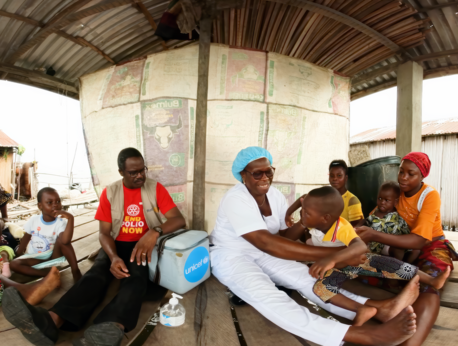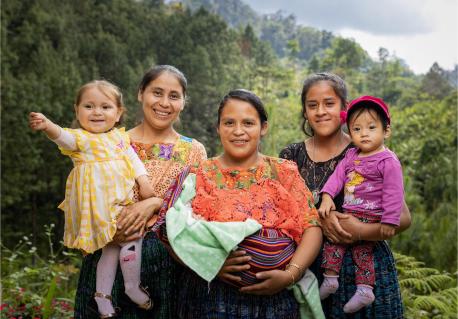
Stand Up for Moms and Children Everywhere This Mother's Day
When poverty, conflict and climate emergencies threaten children's health and safety, UNICEF is there to help. UNICEF Inspired Gifts make it easy for anyone, anywhere, to send lifesaving supplies to those in need around the world.
Helping mothers and children in need makes the world a better place for everyone
Every mother wants her child to have the best possible start in life. A safe birth, quality health care, vaccines to protect against disease, clean water, nutritious food.
For children born into poverty, conflict or climate emergency, these basic necessities can seem impossibly out of reach. That's where UNICEF comes in: stepping up around the world to ensure that every child receives the essential care and services they need to grow up healthy and able to reach their full potential.
Below, a few recent examples of the many ways UNICEF is there for mothers and their children.
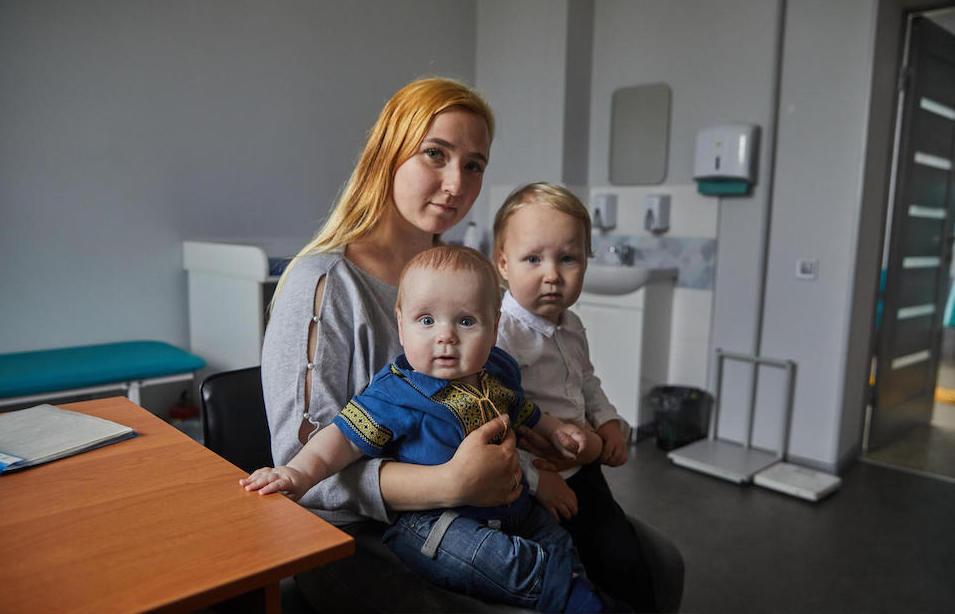
Vaccines in Ukraine
Every child needs to be immunized against preventable diseases. After being examined by a pediatrician in Kyiv, Ukraine, 7-month-old Oleksandr received DPT (diphtheria, pertussis, tetanus) and polio vaccines, while his mother and 6-year-old sister, Vira, looked on.
To help the government of Ukraine, UNICEF is supplying vaccines and upgrading the cold chain. On April 25, UNICEF provided the Ministry of Health with six large refrigerated vehicles for safe vaccine transportation. Earlier in April, UNICEF delivered 543,000 doses of oral polio vaccine (OPV) and 110,160 doses of inactivated polio vaccine (IPV) to protect children in Ukraine.
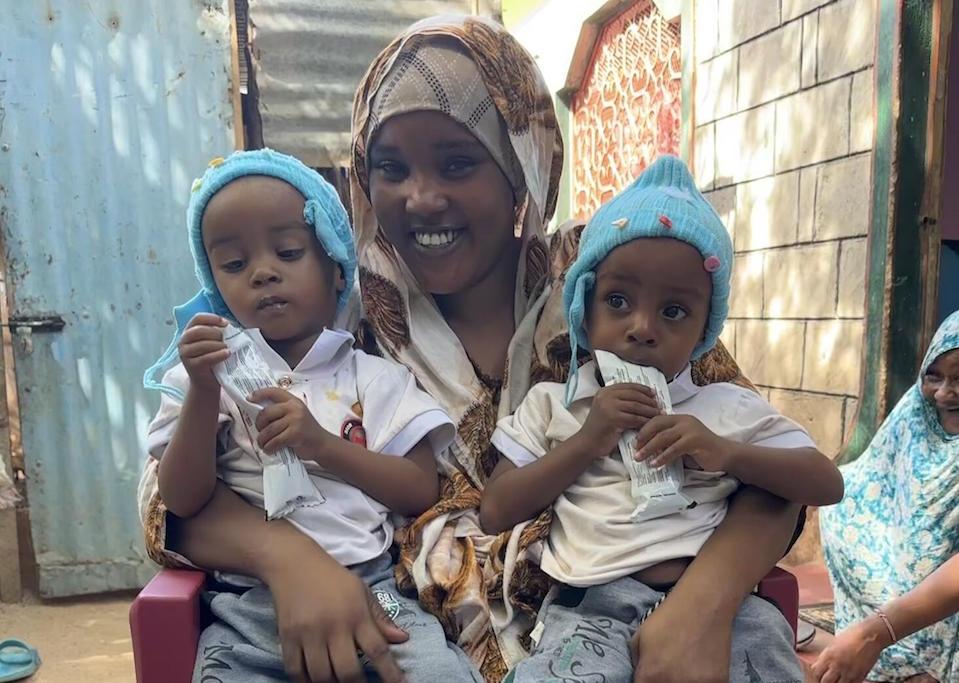
Lifesaving nutrition support in Kenya
Mothers are struggling to feed their children in the Horn of Africa, where a prolonged, severe drought has forced families out of their homes and robbed them of their livelihoods. When 23-year-old Sadia Aden's 2-year-old twins, Khalil and Khalid, became severely malnourished in Garissa, Kenya, she turned to UNICEF for help.
“We have had a lot of problems during the drought," Sadia said. "We had to move from one place to another and the children became sick."
A UNICEF-supported community health worker visited the family in March, and referred the boys to the hospital for treatment with Ready-to-Use Therapeutic Food (RUTF), a shelf-stable peanut paste that can bring a malnourished child back to health in a matter of weeks.
"Now, they are back at home, in the outpatient program, and their weight has returned to normal," Sadia said. "As a parent, I feel very good that they are getting better.”
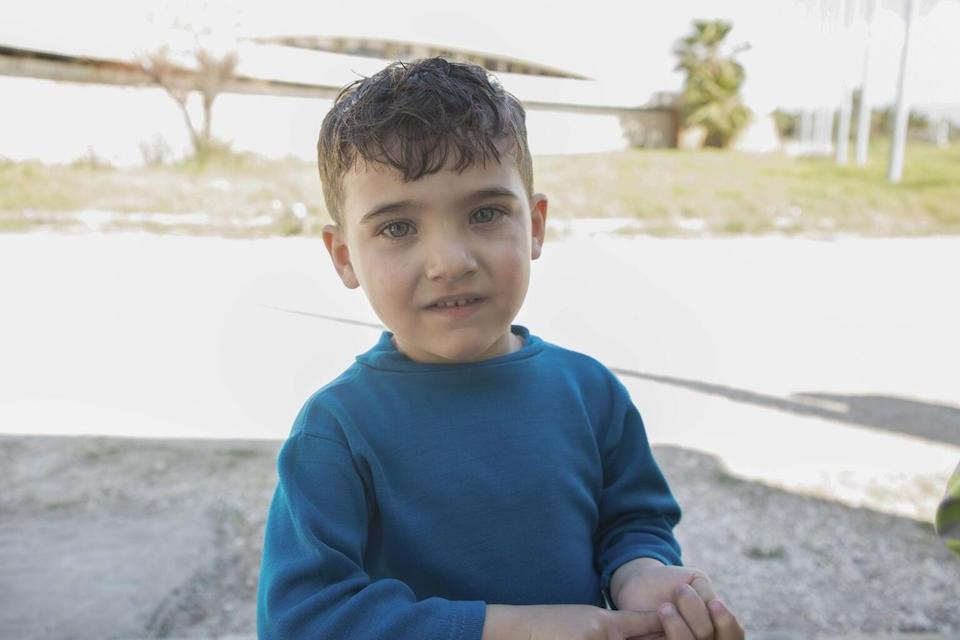
Sanitation for families displaced by earthquakes in Syria
UNICEF teams rushed to provide emergency assistance after devastating back-to-back earthquakes hit Türkiye and Syria in February 2023. At the four major shelters for displaced families in Lattakia, Syria, UNICEF and partners rehabilitated water and sanitation facilities and distributed family hygiene kits. Five prefabricated showers and toilets were installed at the Sports City shelter. “Ibrahim was so excited, he asked me if he can take a shower every day,” said his mother, Hana.
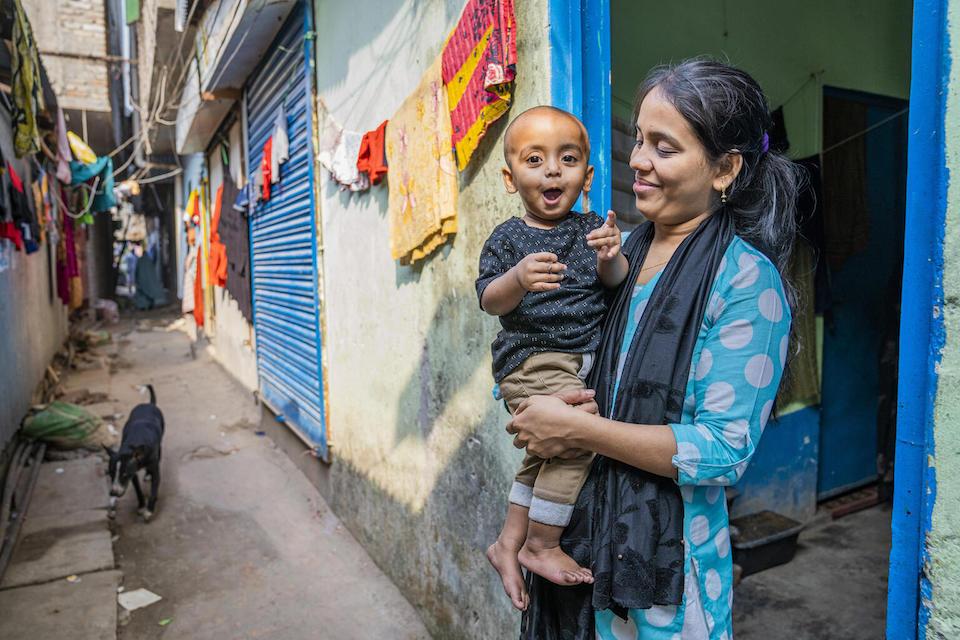
Accessible health care in Bangladesh
All babies and children need regular pediatric check-ups. In Karail, a poverty-stricken neighborhood in Dhaka, Bangladesh's capital city, working mother Israt Jahan Tania takes her 16-month-old son, Hasnat, to UNICEF-supported Aalo clinic, where quality care is available from 8:30 a.m. to 9:00 p.m. to accommodate parents' work schedules.
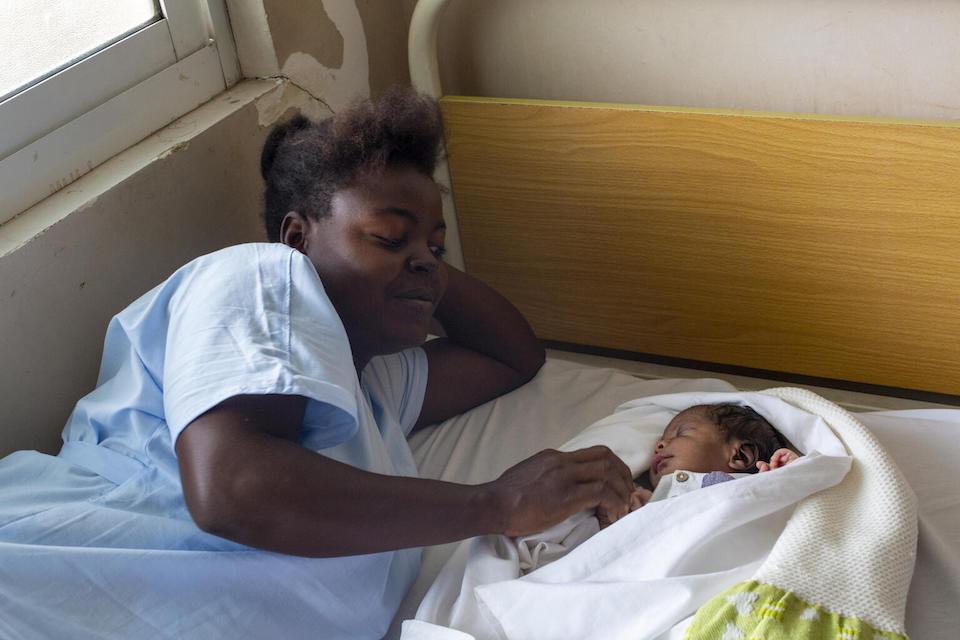
Routine immunization in Angola
UNICEF is working closely with the government of Angola to help the routine immunization program rebound from years of neglect and the effects of the COVID-19 pandemic. In 2022, Angola was one of 10 countries with the highest number of unvaccinated children in the world. Thirty percent of the country's children were zero-dose — they had yet to receive a single vaccine.
Sabrina Domingos, 35, was happy to have her newborn son vaccinated against tuberculosis, Hepatitis B and polio at UNICEF-supported Benfica Maternal and Child Health Center in Luanda.
"I have four children; they are 16, 11, 8 and now my 1-day-old boy," she said. "I got these vaccines. They are very important to prevent disease."
This Mother's Day, honor the moms in your life by sending a UNICEF Inspired Gift to support mothers and children in need. The Mother's Love bundle contains an infant resuscitation kit and five thermal blankets to keep infants warm. Mom and Baby Care supplies ensure the safety and well-being of both mother and newborn during and after delivery. Your contribution can make a difference.


